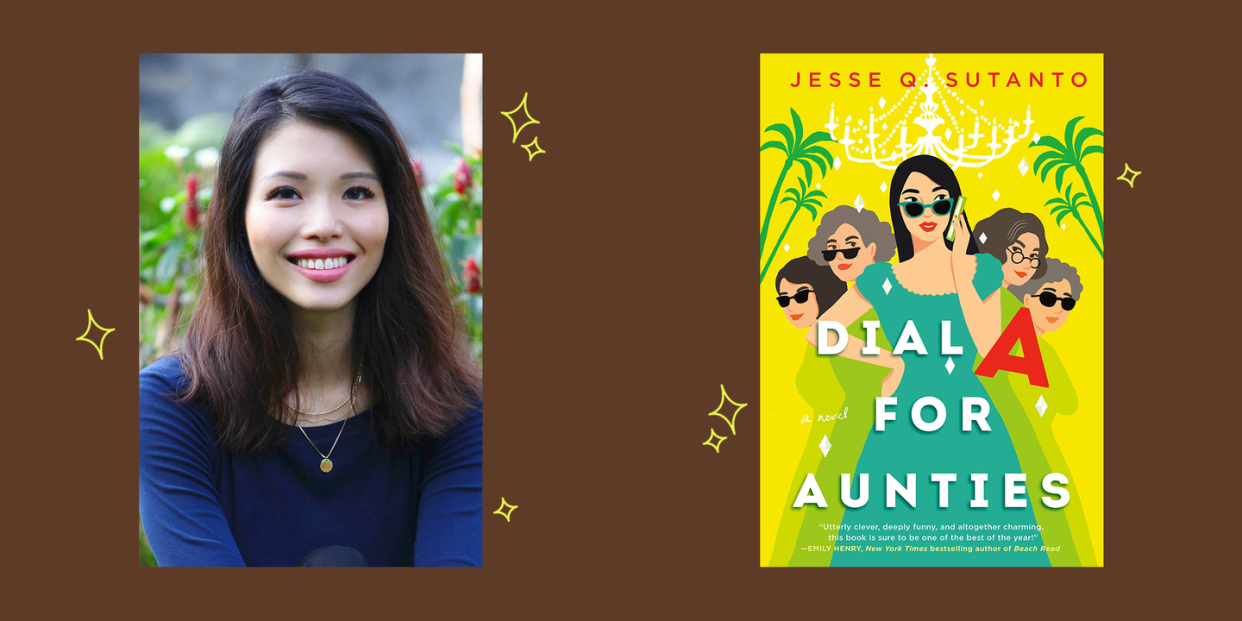My Broken English Isn’t an Excuse for Your Disrespect

I have a confession to make: I prefer writing in present tense because I don’t really know my tenses. I did learn English when I moved to Singapore at the age of 7, but since I moved back to Indonesia seven years ago, I feel my grasp of the language slipping. Plus, the other two languages that I speak (very badly, I might add), Indonesian and Mandarin, don’t have tenses. So I find myself always speaking in present tense, which gets a bit confusing...and embarrassing.
I’ve always had a love-hate relationship with languages, which is ironic because I’m a writer. But this conflicted relationship is something I’m sure many people from immigrant families can relate to. In Singapore, we speak Singlish—English that’s heavily mixed with Mandarin, Cantonese, Hokkien, Malay, and Tamil—and it’s the language I’m most comfortable speaking. When you run out of words in English, you just pluck one out of any of the aforementioned languages and keep plowing ahead. It’s glorious! But when I've spoken Singlish outside of Asia…oh my gosh. I still cringe remembering the reactions of shock, giggles, and wide-eyed disdain.
The thing I’ve noticed, though, is that while my family and I are often made fun of for our funny accents outside of Indonesia, my husband, who is English (the country, not the language), has never been made fun of for mangling Indonesian. In fact, when he speaks Indonesian, no matter how awful he sounds, he’s always greeted with delight. It’s like: Oh wow, this white person can speak our language! What an honor!
When I traveled to China with a white friend, the same was true. When she spoke Mandarin, people smiled and gave her free stuff—food, trinkets, even clothes. When I spoke it, people frowned and asked why my Mandarin was so bad. Not that I’m bitter or anything! Definitely not. Nope, not at all. But the message was clear: When a Caucasian person speaks an Asian language in an Asian country, it’s treated as an honor, no matter how badly they speak it. Mistakes they make are endearing.
People of color don’t get the same luxury. When we speak broken English in the west, we are treated with scorn or ridicule. People assume that because you speak broken English, you are less intelligent, less worthy of respect.
Take this story as an example: In Indonesian and Mandarin, we don’t have words that include the th- sound, so we often find it challenging to pronounce them. “Three” come out of our mouths as “tree.” “Thing” is pronounced “ting.” “Thought” comes out as “tot.” When I first visited England, it took a lot of discipline to make my tongue move differently, but I did pretty well...until a cute guy asked me what time it was. I glanced at my watch and my stomach dropped.
The time was 3:33. What were the chances?! I mean, come on, universe.
I glared at my watch, willing it to at least inch into 3:34, but I could tell the guy was getting impatient. Couldn’t blame him, he just wanted to know the time, for god’s sake. So I bit the bullet.
“It’s three”... (going well!)... “turrrrr”... (oh, no)... “tee thu-rrrrrreee!”
He snorted and rolled his eyes. Then he wandered off. I melted into a puddle. I bet he forgot the incident as soon as he turned away. But after that, I went home and practiced saying “three” and “thirty” for about an hour. It’s been years since that incident and I still remember how mortified I felt.
When I wrote Dial A for Aunties, my murder rom-com about a young woman who accidentally kills her blind date and has to turn to her meddlesome aunties to help hide the body, I knew that I wanted to tackle the subject of broken languages. It’s something my family and I deal with on a daily basis, and I wanted to show that just because someone doesn’t speak fluent English, it doesn’t mean that they are less worthy in any way.
The aunties in my novel speak the same kind of broken English that my parents and many of my own relatives do, the same English that receives ridicule from native English speakers. I wanted to show that behind the halting sentences, there are highly intelligent people, people whose words flow out of them in their own language.
Never, not even for one second, did I think that Dial A for Aunties would receive as much love as it has so far (Netflix is turning it into a movie!). I keep expecting people to call me out for being a fraud, someone who isn’t even 100 percent comfortable with the English language. But throughout every part of the publishing process, I was never once ridiculed for my accent or the occasional awkward phrase that betrays me as a non-native speaker.
It feels, finally, like I have come full circle and been accepted as a writer, broken English and all.
You Might Also Like

